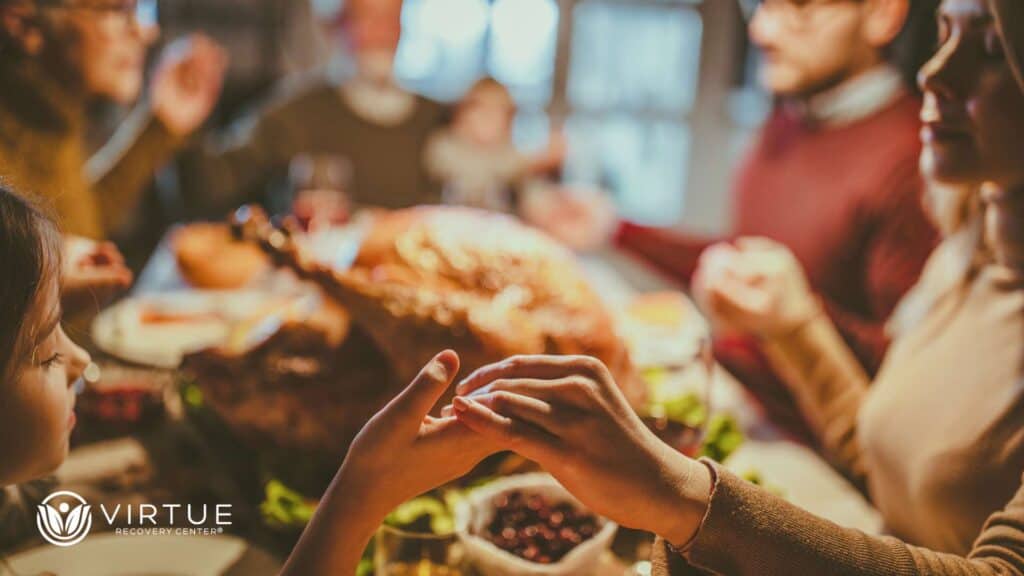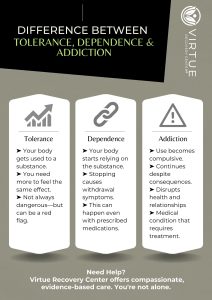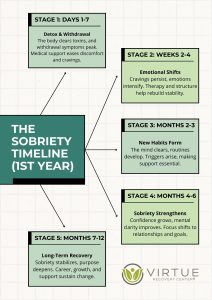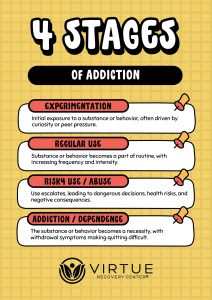Key Takeaways
- Thanksgiving can be stressful for those in eating disorder recovery, but planning and support can help.
- Setting boundaries, planning meals, and practicing mindful eating can ease anxiety.
- Support from loved ones can create a safe and positive atmosphere for the day.
Introduction
Thanksgiving can be a joyful time, but it can also be challenging for those in eating disorder recovery. The focus on large meals, holiday treats, and food-centered gatherings can overwhelm the day. For individuals working hard on their recovery, Thanksgiving can bring up feelings of anxiety, worry, and even guilt.
However, thanks to the right strategies and support, Thanksgiving can still be meaningful. Preparing for these moments with a plan and supportive techniques can help ease the stress and make the day more manageable. Here, we’ll explore how people in recovery—and their loved ones—can approach Thanksgiving in a way that prioritizes healing and well-being.
Why Thanksgiving Can Be a Challenge for Individuals in Recovery From an Eating Disorder
For those in recovery, the holiday season brings unique challenges. Thanksgiving’s emphasis on food can create feelings of discomfort or anxiety, especially for those who are learning to rebuild a healthier relationship with eating.
- The Focus on Food: Thanksgiving is a day where meals are the main event. For people with an eating disorder, being surrounded by large amounts of food and encouraged to eat more than usual can be overwhelming. Traditional Thanksgiving foods, like pumpkin pie or mashed potatoes, might feel like triggers if they bring up past behaviors or guilt.
- Body Image and Social Pressure: Family gatherings can draw attention to how people look or eat, with comments like “You look healthy!” or “Are you eating enough?” For someone in recovery, even well-meaning comments can raise body image concerns or past insecurities. These interactions can make them feel as though they’re under a microscope, intensifying their anxiety.
- Holiday Triggers and Temptations: Certain foods, smells, or family traditions may bring up memories that lead to urges like bingeing or purging. For those with binge eating disorder or anorexia nervosa, Thanksgiving may feel especially difficult due to the abundance of food and the pressure to indulge.
Preparing for The Thanksgiving Holiday in Eating Disorder Treatment Recovery
Preparation can be one of the best defenses against holiday stress. By planning meals, setting boundaries, and focusing on self-care, those in recovery can confidently approach the day.
- Creating a Meal Plan: Working with a dietitian or eating disorder specialist to make a meal plan for Thanksgiving can be incredibly helpful. A plan helps individuals stick to regular eating habits and avoid feeling too full or hungry, which can be triggering. Eating balanced meals beforehand can make the big meal feel less overwhelming and reduce the urge to skip or binge.
- Setting Boundaries and Communicating Needs: Setting boundaries is critical to managing the Thanksgiving experience. Talking to a trusted family member about what topics feel safe and what to avoid can reduce stress. For example, letting loved ones know not to comment on appearance or portion sizes can make the environment more supportive. Open communication also lets people know how they can be helpful, whether offering a distraction or a comforting word.
- Practicing Mindfulness and Affirmations: Mindfulness can help people stay grounded during the holiday. Mindfulness means paying attention to the present moment and noticing thoughts or emotions that arise without judgment. Taking a few deep breaths before or during the meal can create a sense of calm and make it easier to focus on the experience rather than the food. Positive affirmations, like “I am working on my health” or “I am in control,” can also reinforce confidence and reduce anxiety.
Tips to Help Navigate the Thanksgiving Meal While Struggling With Eating Disorders
Thanksgiving dinner doesn’t have to feel overwhelming. With a few strategies, mealtime can be managed to support recovery.
- Stick to Regular Eating Schedules: Avoiding bingeing or restricting is easier when you keep a regular eating schedule. Starting the day with breakfast, followed by a balanced lunch and snack, can prevent feelings of hunger that might otherwise lead to overeating. Knowing that there will be three balanced meals instead of one giant meal can reduce anxiety and help individuals feel more in control.
- Have a Supportive Person Nearby: Having a trusted person by your side during the meal can be comforting. Whether it’s a family member or friend, someone who understands your journey can offer encouragement or serve as a calming presence. They might remind you to breathe or help change the subject if food becomes a central conversation topic.
- Focus on the Social Aspects of the Day: Thanksgiving isn’t just about food—it’s a time for connection and gratitude. Focusing on other parts of the day, like catching up with family members or enjoying a walk outdoors, can shift attention away from the meal. These moments of joy and gratitude can help make the holiday feel more balanced and enjoyable.
How to Provide Support For Loved Ones With an Eating Disorder
For families and friends, Thanksgiving offers a chance to be supportive. Knowing what to say and what not to say can make a big difference for someone in recovery.
- Avoid Triggering Comments: Well-meaning comments about someone’s appearance or eating habits can feel triggering. Avoid saying things like “You look great!” or “Are you eating enough?” Instead, keep conversations positive and neutral, focusing on how nice it is to be together rather than specific behaviors or appearances.
- Respect Boundaries: If someone in recovery sets boundaries, it’s important to honor them. This may mean refraining from specific topics, providing support when asked, or giving them space when needed. Respecting boundaries shows understanding and helps create a safe space.
- Encourage Positive Conversations: Thanksgiving is a time for gratitude, so consider steering conversations toward the positive things in life. Talk about favorite family memories, share stories, or even express your gratitude. These conversations bring light to the gathering and make it easier for everyone to feel comfortable.
Conclusion
Thanksgiving can be a challenging holiday for individuals in eating disorder recovery, but with preparation, support, and a focus on self-care, it can also be manageable. Setting boundaries, planning meals, and finding support from loved ones can make the day less stressful and more enjoyable.
If you or a loved one is working through an eating disorder and needs support, contact Virtue Recovery Las Vegas at 866-520-2861. Our compassionate team is here to offer treatment options for a healthy recovery journey.
FAQs About Navigating Thanksgiving With an Eating Disorder
Why is Thanksgiving especially hard for people in eating disorder recovery?
Thanksgiving revolves around food, which can create anxiety and stress for those in recovery as it brings up challenges related to eating.
What can I do to prepare for Thanksgiving while in recovery?
Creating a meal plan, setting boundaries, and practicing mindfulness are helpful ways to approach Thanksgiving confidently and calmly.
How can loved ones support someone with an eating disorder during Thanksgiving?
Loved ones can help by avoiding comments about food or appearance, respecting boundaries, and fostering a positive and supportive environment.
Is it okay to skip Thanksgiving if it feels too overwhelming?
Yes, taking time for self-care is important, and it’s okay to adjust or skip plans if they feel too challenging during recovery.
How does mindful eating help during Thanksgiving?
Mindful eating helps people stay focused on the present moment, reducing anxiety about food and allowing them to feel more in control.
Should you stick to your regular eating schedule during Thanksgiving?
Sticking to your eating schedule during Thanksgiving can help maintain balance and reduce anxiety. It keeps your body in a steady rhythm, which can help you feel more in control and avoid potential triggers associated with holiday meals.
Should I set boundaries with loved ones during Thanksgiving?
Setting boundaries with loved ones can help protect your mental health and avoid uncomfortable situations. Let them know your needs, such as refraining from commenting on food choices, to ensure a supportive environment.
Should I create new traditions for Thanksgiving?
Creating new Thanksgiving traditions can make the holiday more enjoyable and manageable, especially if traditional activities trigger you. Focusing on non-food-related activities like gratitude sharing or games can help shift focus away from food and foster a sense of togetherness.
What not to do when someone has an eating disorder?
Avoid commenting on their appearance and food intake or suggesting they “just eat.” These behaviors can increase anxiety and worsen symptoms; instead, offer support and understanding by listening and encouraging them to seek professional help if needed.
What skills are needed for eating disorder recovery?
Recovery from an eating disorder often requires skills like emotional regulation, self-compassion, and mindful eating. Building coping strategies, setting achievable goals, and developing a supportive network are essential for sustained progress.
How do you deal with an emotional eating disorder?
Managing emotional eating involves identifying triggers and developing alternative coping mechanisms, such as mindfulness or journaling. Working with a therapist can help address underlying emotions and build skills to replace emotional eating with healthier responses.
Resources
https://www.nationaleatingdisorders.org/get-help/
https://twloha.com/blog/surviving-thanksgiving-with-an-eating-disorder/













